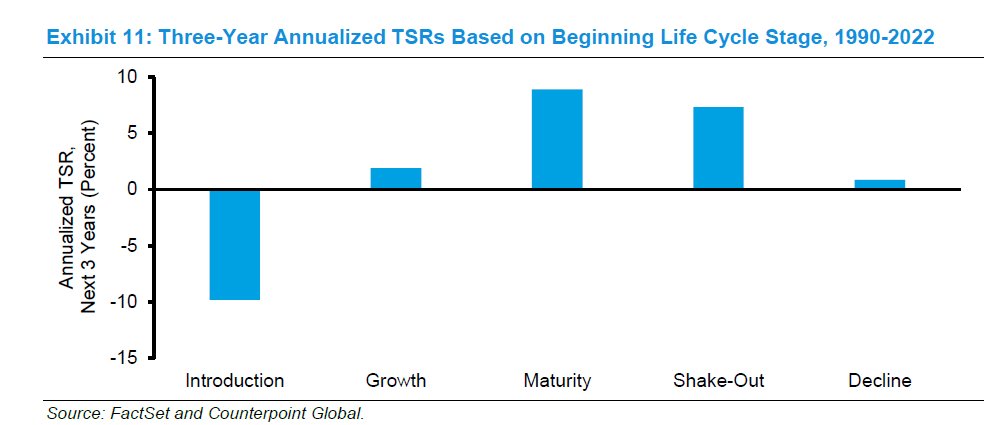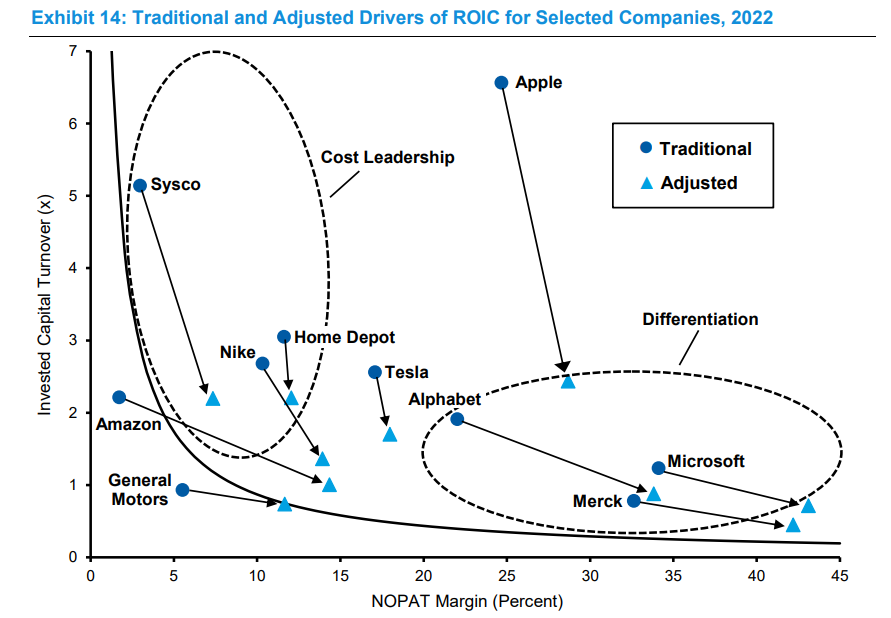Lessons from the Titans is filled with observations on legendary industrial companies. These are some of my favorites.
“Their secrets are hardly secrets at all—continuous improvement, rigorous benchmarking, disciplined investment, principled leadership, solid business systems.”
“Their secrets are hardly secrets at all—continuous improvement, rigorous benchmarking, disciplined investment, principled leadership, solid business systems.”

“The reasons for failure and the formulas for success haven’t really changed at all. Whether it be 1950, 1980, or 2020, they are pretty much exactly the same.”
There's no silver bullet: sustainable success is simple but not easy.
The book emphasizes the compounding advantage of getting a lot of small things right.
“... three common drivers: a relentless discipline on costs, cash flow, and capital deployment.”
The book emphasizes the compounding advantage of getting a lot of small things right.
“... three common drivers: a relentless discipline on costs, cash flow, and capital deployment.”

“The clearest lesson from our century-long database is that undisciplined operations don’t work. They don’t work for core operations ... They don’t work for acquisitions either. Managing by heroic CEO decisions and forecasts is a doomed strategy.”
Culture is key. Arrogance kills.
"Culture is an output: actions of leadership and incentives drilled into an organization over time.”
It is “encouraged from the top but is actually built from the bottom—on the factory floor or in the cubicles where work gets done."
"Culture is an output: actions of leadership and incentives drilled into an organization over time.”
It is “encouraged from the top but is actually built from the bottom—on the factory floor or in the cubicles where work gets done."
After the implosion of GE (which tried to get one of the authors fired):
“We spend tremendous effort looking for signs of arrogance; it’s the most common attribute of failure, even rising above complacency, and those who succeed seem to find a way to encourage humility.”
“We spend tremendous effort looking for signs of arrogance; it’s the most common attribute of failure, even rising above complacency, and those who succeed seem to find a way to encourage humility.”
Systems of continuous improvement, operational excellence, and discipline.
Continuous improvement leads to a compounding advantage.
“You can’t just copy the Danaher Business System; the very point of DBS is continuous improvement. ... it would already be an outdated version."
Continuous improvement leads to a compounding advantage.
“You can’t just copy the Danaher Business System; the very point of DBS is continuous improvement. ... it would already be an outdated version."

"However, the best practices are clear. Keep it simple: find what is critical to your organization’s success, and then measure and compensate around those metrics.” 

“The essence of continuous improvement is collaboration: workers identify hiccups to be smoothed out"
For example: "Danaher believes that project management requires some form of visual aid, and that regular (but short) meetings should be held in front of the visual aid.”
For example: "Danaher believes that project management requires some form of visual aid, and that regular (but short) meetings should be held in front of the visual aid.”

“We’ve heard dozens of companies adapt the lingo of continuous improvement and even some of the techniques. Most fail to make durable progress. Making an actual system work takes years of disciplined implementation.”
Importance of field research:
“I arrived in Peoria, IL for a factory visit that showed how disorganized production can get when a rise in demand meets a poorly running system. … bins filled with components that should have been on bulldozers, but instead were labeled re-work.”
“I arrived in Peoria, IL for a factory visit that showed how disorganized production can get when a rise in demand meets a poorly running system. … bins filled with components that should have been on bulldozers, but instead were labeled re-work.”
Looks can be deceiving when it comes to leadership.
Investors “favored leaders who played the game and looked the part … Cote favored hunting over golf. He drank soda and beer from a can and ate Kentucky Fried Chicken. He liked to ride his motorcycle and smoke cigars.”
Investors “favored leaders who played the game and looked the part … Cote favored hunting over golf. He drank soda and beer from a can and ate Kentucky Fried Chicken. He liked to ride his motorcycle and smoke cigars.”

Incentives can make all the difference.
At $TDG: “The people there work harder, sleep less, and make more money than at any other company I’ve ever encountered. ... typical line manager, you take home $250,000. That same product line manager at TransDigm can make $1 million.”
At $TDG: “The people there work harder, sleep less, and make more money than at any other company I’ve ever encountered. ... typical line manager, you take home $250,000. That same product line manager at TransDigm can make $1 million.”

Great CFOs may be undervalued.
“The CFO job is underappreciated by a country mile in almost every great corporate story. Fifty years ago, the job was more bookkeeper than strategist, but today it’s about as complex as anything out there.”
“The CFO job is underappreciated by a country mile in almost every great corporate story. Fifty years ago, the job was more bookkeeper than strategist, but today it’s about as complex as anything out there.”

"Failure often came down to lack of risk controls, lack of growth in free cash flow, and the inability to manage capital allocation overall. All issues heavily impacted at the CFO level."
I summarized what I learned here:
“Most companies we follow don’t get the first step right for starting compounding growth: good operations, founded in continuous improvement, that drive a widening gap versus competitors.”
neckar.substack.com/p/studying-gre…
“Most companies we follow don’t get the first step right for starting compounding growth: good operations, founded in continuous improvement, that drive a widening gap versus competitors.”
neckar.substack.com/p/studying-gre…
And interviewed one of the book's authors, touching on companies like $DHR $DE $IR $HON $CAT $URI $AME
“You know, my job is a tricky one. You have to be arrogant enough to have an opinion, and humble enough to know you're probably wrong most of the time.”
neckar.substack.com/p/conversation…
“You know, my job is a tricky one. You have to be arrogant enough to have an opinion, and humble enough to know you're probably wrong most of the time.”
neckar.substack.com/p/conversation…
• • •
Missing some Tweet in this thread? You can try to
force a refresh














